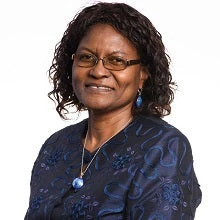 environment
environment
From our bustling cities to our beautiful countryside, plastic is choking our drains and rivers. It’s causing open flooding and providing convenient breeding grounds for mosquito and water-borne diseases as water becomes trapped in plastic. Plastic also degrades over time, releasing smaller particles called microplastics, posing a significant risk to humans and ecosystems. And, who among us hasn’t seen the heartbreaking pictures of dolphins, turtles, whales, and birds harmed – and their lives cut short – by plastic pollution? It’s clear that urgent action is needed to save our environment.
In Dhaka city alone, plastic waste has gone up more than 3.5 times from 178 tons per day in 2005 to 646 tons per day in 2020 . Of that 646 tons, only 37 percent is recycled, and mostly by the informal sector. Landfills are most often found filled with single-use plastics, such as thin shopping bags.
More than a year ago, when I visited the remote Katka beach in the majestic Sunderbans forest, we picked about two cubic meters of plastic waste on our walk around the beach. And this beach is not even a crowded tourist hub like Cox’s Bazar.
The COVID-19 pandemic has exacerbated plastic pollution. Not only is the pandemic bringing human tragedy and loss but is also leading to greater environmental crisis-- a surge in the use and improper disposal of plastic waste . The Environmental Sciences and Technology journal estimates that globally, more than 129 billion disposable masks and 65 billion throw-away gloves are used every month — most ending up in our rivers and oceans.
We must act now. If we don’t, solid waste generation in South Asia, already at 334 million tons annually, is estimated to double by 2050, and costs to the environment, biodiversity, communities, livelihoods, and possibly our health will be huge. We can’t let that happen.

Collaborations can make a difference
Addressing plastic pollution is not only a crucial development agenda but an opportunity to innovate, create new green jobs, ensuring a green growth pathway for Bangladesh. The Bangladesh government has proactively responded to this challenge by issuing bans and regulations. In 2002, the Ministry of Environment, Forest, and Climate Change banned plastic carry bags. In 2018, a draft regulation on use of plastic packaging by food, beverage & agro-inputs industries reinforced its commitment to address plastic issues. In 2020, a High Court order was issued to ban single-use plastic in coastal areas and in all hotels and motels across the country.
The 8th Five Year Plan also focuses on improving solid waste management in the urban areas. With support from the World Bank, the government has finalized a draft multi-sectoral action plan for sustainable management of plastics. All these initiatives give us hope. If citizens, manufacturers, and the government all come together, we can make a difference.

Solutions from the youth
Bangladeshi youth’s creativity and determination towards beating plastic pollution was abundantly clear with the innovative submissions to the Plastic Circularity Innovation Challenge 2021 supported by the World Bank-administered multi-donor trust fund, PROBLUE.
The contest called for innovative solutions in combating the plastics surge. The diversity of solutions from the winners was impressive and futuristic – from a plastic management system using a micro-credit business model to a floating waste-cleaning robot as well as cutting-edge digital platforms to incentivize households and organizations to recycle. Indeed, these are the leaders of tomorrow.
The Future is here
All the four award-winning ideas are implementable and scalable.
For example, Parley for the Oceans, and the South Asia Cooperative Environment Programme (SACEP) with support from World Bank have launched the $50 million Plastic-free Rivers and Seas for South Asia project, which will support eco-innovations in the region. We are also working together with the government to prepare a new pollution management project.
As we build back better towards a green and inclusive recovery, we must act together to preserve, protect, and save our environment. Bangladesh has played a critical role in leading the world’s efforts on climate change mitigation and adaptation. On World Environment Day, let’s continue to move forward in fresh, new ways with the help of our partners and our passionate youth to tackle plastic pollution.
Learn more about the winning teams.
Watch: A Promise to Keep


Join the Conversation